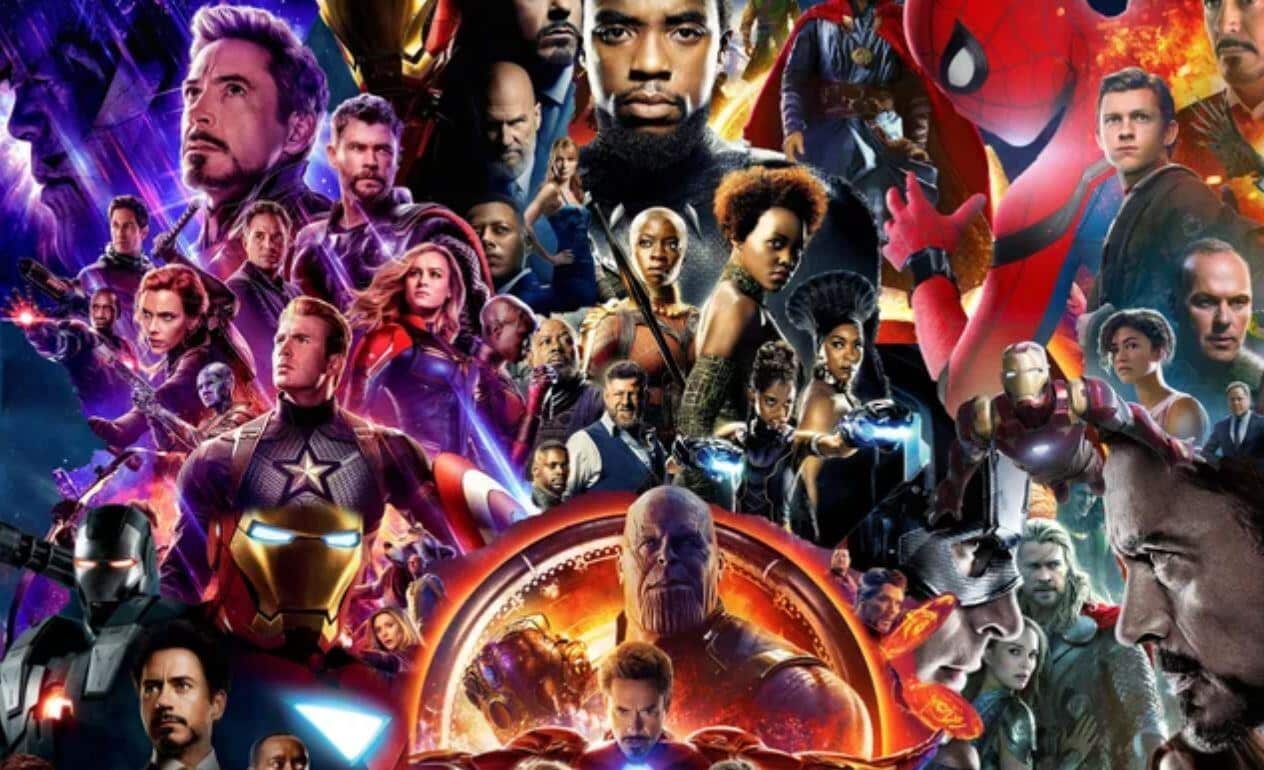Marvel's Quality Control: Are The MCU Movies And Shows Meeting Expectations?

Table of Contents
The Peak of the MCU: Analyzing Early Successes
The early MCU films set a high bar. Movies like Iron Man, The Avengers, and Captain America: The Winter Soldier weren't just box office behemoths; they were critically acclaimed, lauded for their compelling narratives, strong character development, and innovative visual effects. This success wasn't accidental. Several key factors contributed to their consistent quality:
- High-quality casting choices: Marvel consistently selected actors who embodied the spirit of their characters, creating believable and relatable heroes.
- Well-defined character arcs: Each film featured characters with clear motivations and compelling journeys, allowing audiences to connect with them on an emotional level.
- Strategic interconnected storytelling: The early MCU films masterfully laid the groundwork for a shared universe, creating anticipation and excitement for future installments. Each film felt significant within the larger context.
- Consistent brand identity: Despite diverse storylines and tones, a consistent brand identity—a blend of humor, action, and emotional depth—tied the films together, creating a cohesive viewing experience. The MCU felt like a universe, not just a collection of movies.
The Expanding Universe: Navigating the Challenges of Scale
The MCU's expansion into television and a significantly larger number of films has presented unprecedented challenges to quality control. While some recent projects have maintained the high bar set by their predecessors, others have fallen short, leading to varied critical reception and audience feedback.
- Increased production pressure & shorter deadlines: The sheer volume of content being produced has inevitably led to tighter deadlines and increased pressure on creative teams.
- Maintaining consistency across different creative teams: With multiple directors, writers, and showrunners involved, ensuring consistency in tone, style, and narrative across different projects is a monumental task.
- Balancing individual stories with the overarching narrative: While individual stories need to stand on their own, they also need to contribute meaningfully to the larger MCU narrative, a delicate balancing act that hasn't always been successful.
- Addressing audience feedback and criticism: The intense scrutiny from fans and critics necessitates a responsive approach to feedback, something that can be challenging to manage effectively within the fast-paced production cycle.
The Impact of Disney+ Series on MCU Quality
The launch of Disney+ brought a wave of MCU series, significantly impacting the franchise's overall quality. Shows like WandaVision and Loki were praised for their innovative storytelling and exploration of complex themes, enriching the MCU mythology. However, not all series have reached the same heights.
- Successful examples (e.g., WandaVision, Loki) and their contributions to the MCU: These shows expanded character arcs, introduced new concepts, and significantly impacted the overall narrative.
- Less successful examples and analysis of their shortcomings: Some series struggled with pacing, character development, or a disconnect from the overarching narrative, highlighting the challenges of maintaining quality across different formats.
- Impact of different creative styles and showrunners: The varying creative visions of different showrunners resulted in a range of tonal and stylistic differences, which some viewers found jarring.
- The effect of budget and production limitations: While some Disney+ series boasted high production values, others faced limitations that impacted their visual quality and overall production.
Audience Expectations and Critical Reception: A Shifting Landscape
Audience and critical response to recent MCU projects highlight a shifting landscape of expectations. The early MCU success created a high bar that subsequent projects are judged against.
- Changes in audience tastes and preferences over time: What resonated with audiences a decade ago might not resonate as strongly today.
- The role of social media in shaping opinions: Social media has amplified both positive and negative opinions, influencing audience perceptions and expectations.
- The impact of review aggregators (Rotten Tomatoes, IMDB) on perception: Aggregate scores often shape overall opinions, even if they don't fully capture the nuance of individual experiences.
- Balancing audience expectations with creative risks: The challenge lies in balancing audience expectations with the need for creative risks and experimentation.
Future of MCU Quality Control: Strategies for Continued Success
Maintaining the MCU's high standards requires a strategic approach to quality control. Marvel needs to implement strategies that address the challenges of scale and evolving audience expectations.
- Improved communication between creative teams: Enhanced communication and collaboration can ensure consistency across different projects.
- More focused storytelling with fewer simultaneous projects: Reducing the number of simultaneous projects allows for more focused attention and higher-quality output.
- Increased emphasis on character development and emotional resonance: Focusing on strong characters and emotionally resonant stories will deepen audience connections.
- Greater responsiveness to audience feedback: Actively listening to and responding to audience feedback is crucial for adapting to changing tastes and preferences.
Conclusion
The Marvel Cinematic Universe's success hinges on its ability to maintain consistent quality control across its expansive movie and television slate. While the early MCU established a benchmark for superhero storytelling, the sheer scale of the franchise presents ongoing challenges. By acknowledging audience expectations, actively addressing feedback, and streamlining its creative processes, Marvel can continue to deliver compelling narratives that resonate with fans worldwide. The future of the MCU depends on its ongoing commitment to enhancing its quality control and meeting the high expectations it has set itself. Are you satisfied with Marvel's recent output? Let us know your thoughts on Marvel's quality control in the comments below!

Featured Posts
-
 Combat Ufc A Des Moines Mise A Jour Sur Le Combat De Robertson Du Canada
May 05, 2025
Combat Ufc A Des Moines Mise A Jour Sur Le Combat De Robertson Du Canada
May 05, 2025 -
 Gigi Hadid The Reason Behind Bradley Cooper And Leonardo Di Caprios Fallout
May 05, 2025
Gigi Hadid The Reason Behind Bradley Cooper And Leonardo Di Caprios Fallout
May 05, 2025 -
 Ufc 315 And May 2025 Fight Card Complete Schedule And Predictions
May 05, 2025
Ufc 315 And May 2025 Fight Card Complete Schedule And Predictions
May 05, 2025 -
 New Photos Bradley Cooper Directs Will Arnett For Is This Thing On
May 05, 2025
New Photos Bradley Cooper Directs Will Arnett For Is This Thing On
May 05, 2025 -
 Pimblett Vs Chandler Referee Warning Requested Ahead Of Ufc 314 Bout
May 05, 2025
Pimblett Vs Chandler Referee Warning Requested Ahead Of Ufc 314 Bout
May 05, 2025
